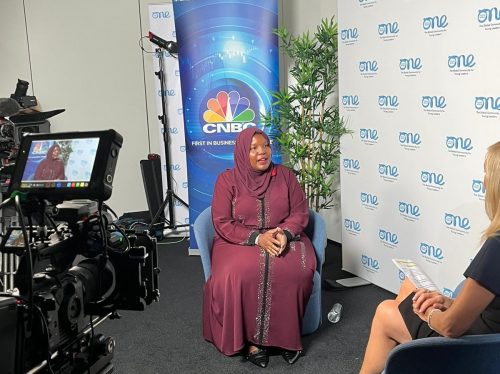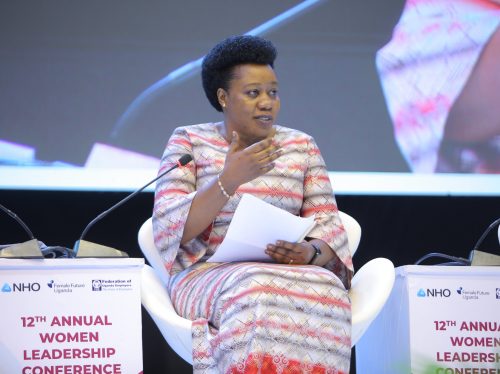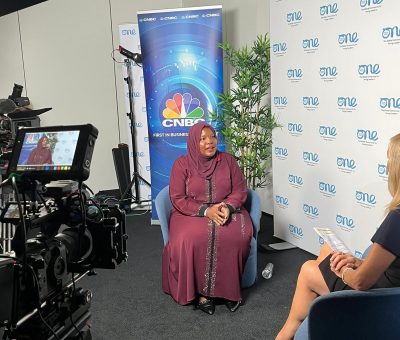Ankunda is passionate about maternal mental health and early childhood development

According to National Center for Biotechnology Information (NCBI), poor maternal mental health, particularly maternal depression, is a risk factor for the socioemotional and cognitive development of children. Additionally, Mayoclinic.org states that the risk of depression is approximately two-fold higher in women than in men. Moreover, women are more prone during the postpartum period due to hormonal changes associated with childbirth and stressors associated with parenting.
The combination of women’s vulnerability to depression and the high prevalence of maternal depression in developing countries, yet they are the primary caretakers of children (at least here in Uganda), means maternal mental health has a substantial influence on growth during childhood.
Inadequate growth during childhood can result in reduced adult stature, low educational performance, reduced economic productivity, impaired work capacity, and heightened disease risk. Simply put, a new mother suffering from a mental illness will not only suffer negative effects in her life but even the near and far future of her children. By addressing maternal mental health, you not only address the mental health of mothers but also early childhood development, which according to the United Nations Children’s Fund (UNICEF) is key to a full and productive life, and to the progress of a nation.
Aware of all this, Kullein Ankunda, a Global health professional, Christian, lover of life, and mental health advocate founded Malketha Maternal Services, an organisation aimed at providing respectful and quality mother-centred services. These services put emphasis on the mental health of primary, secondary and tertiary caregivers for children during Early Childhood Development (ECD).
Ankunda has a professional background of social behavioural change communications, partnerships, stakeholder management, humanitarian work, and community engagement. Most importantly, she is passionate about bridging the health access gap between health providers and users through the utilisation of innovation in health technology.
From a young age, Ankunda knew what she wanted to do; it was always a version of being a medical officer with a bias towards women. “While I loved to read, and was already a published writer by 11 years of age, my heart was always drawn to anything health-related. One night in high school as we were preparing for night prep, my best friend Kezia (RIP) asked me what I was planning to read and I said, “Biology”. She then made a comment about how I was always reading Biology. I did not know it then but the road to being a health professional had already started.
Kezia’s death, which was perpetuated by a series of delays in accessing health care, set the ball rolling. I suffered severe depression, dealing with symptoms I did not understand, while her family went through even worse. Seeing what Kezia’s mother agonised through, my interest in maternal mental health was born.”
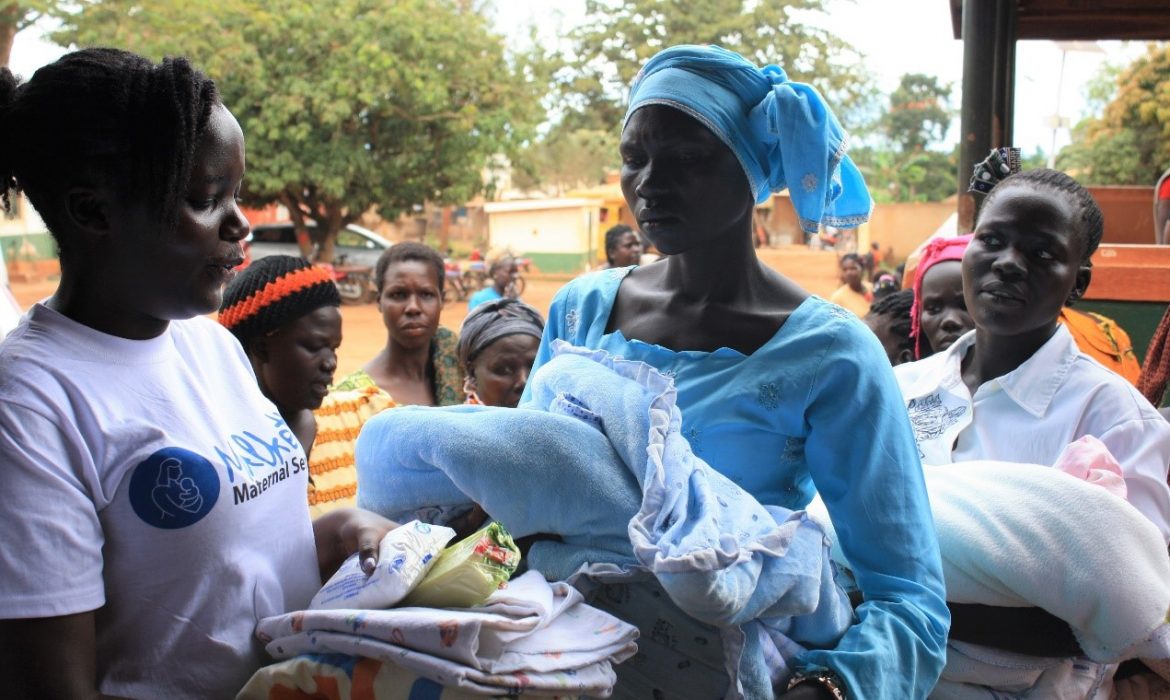
Starting in 2018, the journey thus far is fuelled by her desire to provide a service that would address maternal health, while integrating a strong mental health aspect. “I became intentional about accessing any training and expertise around entrepreneurship and health. In August, 2018, I attended an entrepreneurship training in Nairobi under Young African Leaders Initiative (YALI).
Thereafter, I joined the Global Health Corps fellowship, and also joined Global Shapers, a group of equally passionate young people under the World Economic Forum. Currently I am undertaking my Masters programme in Global Health Planning and Management at Johns Hopkins University. Needless to say, the learning does not end, but I am continuously being equipped with skills to make my vision a reality,” she shares.
Malketha Maternal Services was born on December 19, 2018 and they believe that the physical, mental and emotional wholeness of a mother is the most important aspect of a child’s life – from conception and beyond. They thus work towards ensuring mothers are fully empowered to put their health, especially mental health, at the front.
Challenges
At the beginning, the hurdle was getting people to understand and appreciate the concept of maternal mental health for it was a new phenomenon in Uganda. “One gentleman ignorantly joked that maternal mental health was “abalalu abazaala abaana”, to mean “insane people that give birth”. Fortunately, we have come a long way since then. Additionally, the COVID-19 pandemic has pushed mental health to the fore, which has led to the demystifying of the role of mental health in Maternal Health and Early Childhood Development. This has also encouraged and facilitated conversations around maternal mental health and its ripple effect on the health, livelihood and economy of communities and the country.”
The other challenge is a shortage of time to implement all their projects, which the lockdowns delayed further. “However, we have a number of plans in the pipeline, and through strategic partnerships, we should be able to address the time issue.”
Fuel to go on
Ankunda says she has a passion for health and believes in the objectives of Malketha Maternal Services. If ever she had any doubts, the spike in mental health illnesses over the past two years has erased them. “I want to see the mothers in my community, country and other places fully empowered to take their health, especially their mental health, into their own hands.”
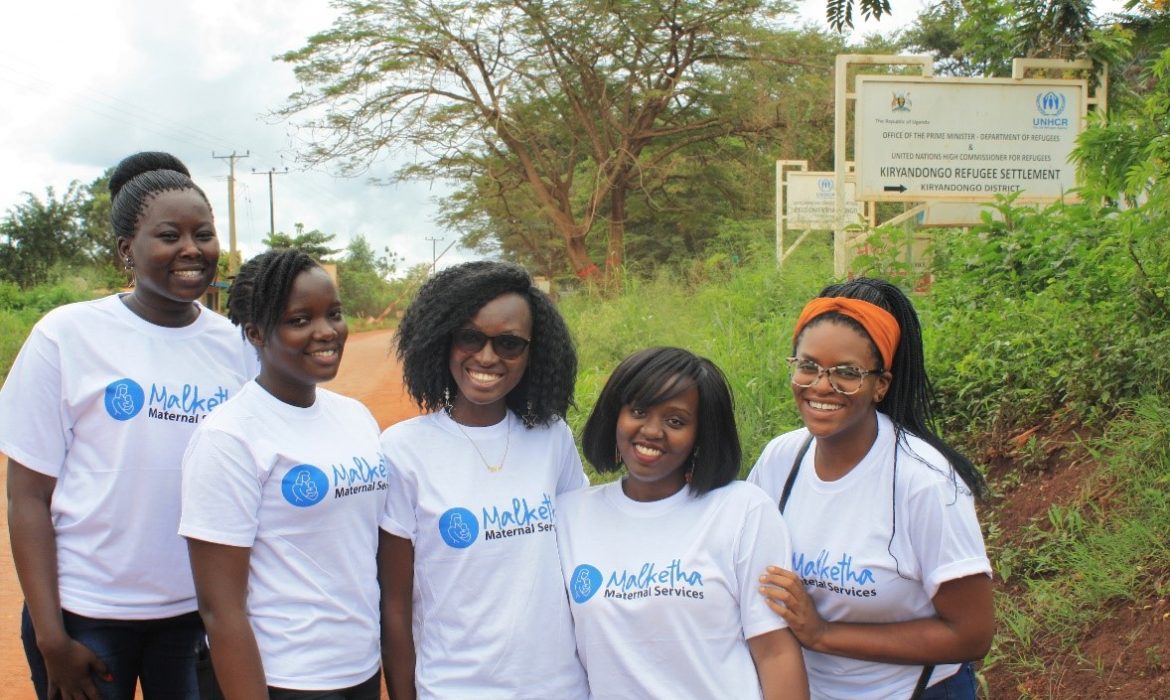
The team is also encouraged by the feedback from some of the women and mothers they work with. You know the saying – the hand that rocks the cradle rules the world. Ankunda and her team know that by impacting even one woman/mother, they impact her community.
Successes
Ankunda says God has been good as they are providing maternal and/or mental health services including pre-natal, birth and post-natal services. They have done several community projects and campaigns:
- The Malketha “Lighting up Christmas” Campaign; conducted in partnership with LifeNet International to support several health centres in a 2-months campaign with a goal of donating 50 rechargeable lamps to almost a dozen facilities in 5 districts across the country.
- World mental health day- Malketha Doula Chat; to explain the link between Doulas and labour, the delivery process, and birth outcomes, including mental, emotional, physical, psychoeducational aspects of parenting.
- The “Dance mama, dance!” project; a 3-months project in partnership with Global Health Corps that used dance to facilitate conversations and actions around the mental health of mothers in vulnerable situations in Kampala, Uganda.
- The love-notes Maternal Mental Health Campaign; conducted in partnership with Real Medicine Foundation (the medical implementing partner for UNHCR in refugee settlement areas in Uganda) and TPO. It brought together hundreds of refugee mothers who were sensitised about their mental health. In addition to new/gently-used baby/mother items, finances, and food items, well-wishers contributed “Love-notes” of encouragement for the mental health of the mothers/care-takers.
- Maternal Mental Health Dialogues: the first dialogue was held at the American Centre with the theme “Maternal Mental Health: The role of non-physical causes of maternal deaths in Uganda.”, a second dialogue with the Rotaract club of Rotary District 9211 themed “The economic impact of Maternal Mental Health” and a third Mental Health sensitization with teenage mothers in Mengo, Kampala
All this is made possible by the great team Ankunda works with that is always available when called upon, as well as a solid support system in her personal life. The organisation also has a lot of support from various volunteers.
Moreover, her formal employment supports a large percentage of Malketha activities, besides the partnerships. “It is something I am grateful to have and as with everything in life, there has been a lot of sacrificing and prioritising. Weekends are not automatic days off, and you have to say no to others, and yourself often. That said, all this works together strategically to keep Malketha moving forward,” she shares.
Future
For now, the Malketha team continues to provide services and advocate for better mental health services in Uganda. They desire to go as far as advocacy for policy change around integrating mental health care in Primary Health Care, mental health training in all medical training, and including maternal mental health coverage in all health insurance. “We would also like to start providing in-patient services for mothers that are respectful, quality and mother-centred, with exceptional efficiency and the highest level of professionalism.”
When not working, Ankunda enjoys a good read, traveling the world and inventing new recipes. She was also a part of the Kampala Amateur Drama Society (KADS), although it has been a while since she took part in anything onstage.



